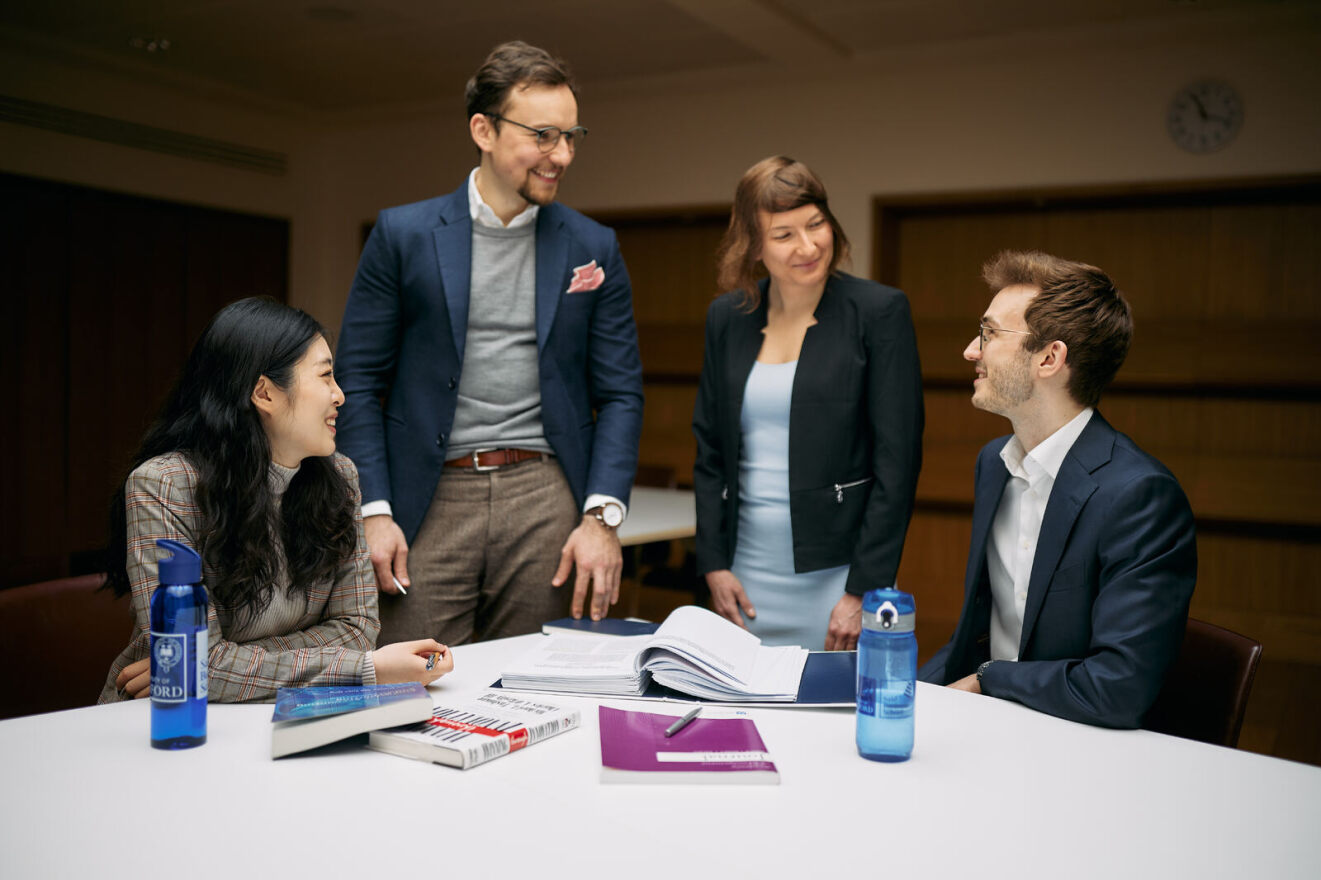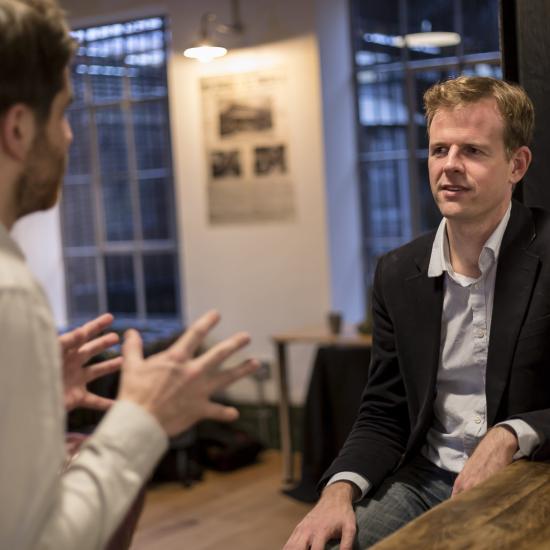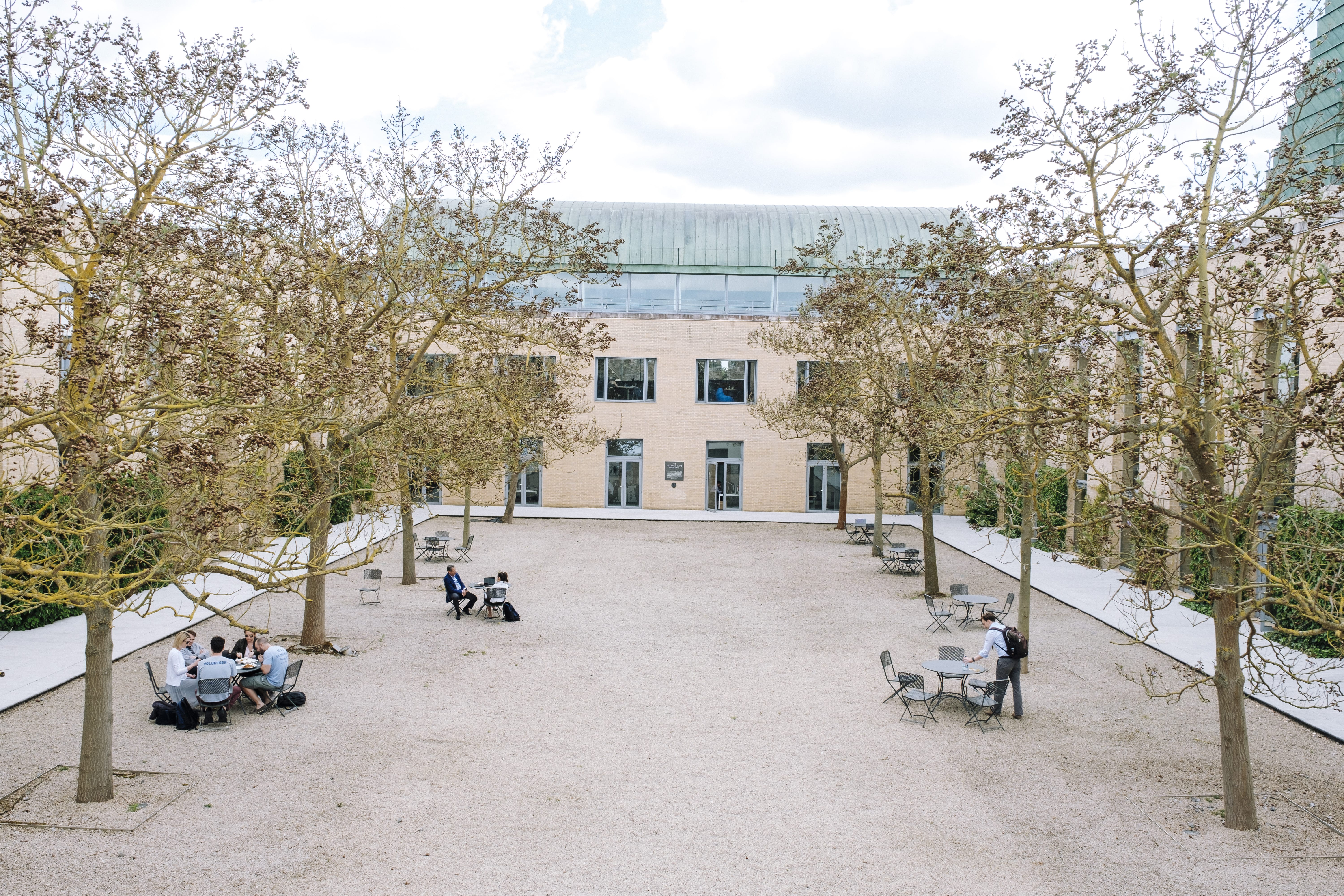Our DPhil offers students the opportunity to engage with internationally renowned faculty who are here to help you become an academic scholar.
You will be initially admitted to the status of Probationer Research Student (PRS). You are required to take three core courses in quantitative and qualitative research methodology during your first year.
- Introduction to management research methods
- Statistical research methods
- Management and organisation theory
During second and third terms, you will undertake advanced research methods training and, in consultation with your supervisor, select specialist courses, available from a choice of topics relevant to area of interest.
Examples of specialist elective courses previously available:
- Political economy
- Organisational theory
- Foundations of strategy
- Social network analysis
Advanced methodology courses:
- Advanced qualitative research methods
- Advanced quantitative research methods
Following successful completion of all necessary courses and within a maximum of six terms as a PRS student (and normally by the fourth term) you will be expected to apply for transfer of status from Probationer Research Student to DPhil status.
A successful transfer of status from PRS to DPhil status is required to be able to show that your proposed thesis gives a clear indication of whether it would be reasonable to consider submission within the course of a further three terms, if work on the thesis continues to develop satisfactorily. Students who are successful at transfer will also be expected to apply for and gain confirmation of DPhil status within nine terms of admission, to show that your work continues to be on track.
Both milestones normally involve an interview with two assessors (other than your supervisor) and provide important experience for the final oral examination.
You will be expected to submit a thesis, which provides a significant and substantial contribution to the field of learning in management, which should not exceed 100,000 words after four years from the date of admission. It should be good enough to be published in book form or as a series of academic articles. To be successfully awarded a DPhil in Management you will need to defend your thesis orally (viva voce) in front of two appointed examiners.
Changes to this course and your supervision
The University will seek to deliver this course in accordance with the description set out in this course page. However, there may be situations where it is desirable or necessary for the University to make changes in course provision, either before or after registration. The safety of students, staff and visitors is paramount and major changes to delivery or services may have to be made in circumstances of a pandemic, epidemic or local health emergency. In addition, in certain circumstances, for example due to visa difficulties or because the health needs of students cannot be met, it may be necessary to make adjustments to course requirements for international study.
Where possible your academic supervisor will not change for the duration of your course. However, it may be necessary to assign a new academic supervisor during the course of study or before registration for reasons which might include illness, sabbatical leave, parental leave or change in employment.
For further information please see our page on changes to courses and the provisions of the student contract regarding changes to courses.









